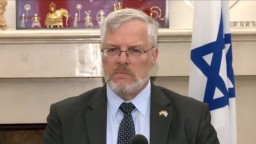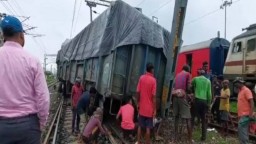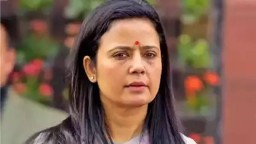Latest News
OF SOP OPERAS, POLITICS & GUJARAT ELECTIONS

Freebies or better known as “revdis” in the Indian political parlance has gained prominence in debates and the relevance of the same is a hot topic. Prime Minister Narendra Modi of late has been hitting out in a veiled manner against the reported populist schemes of doling out freebies which are not just a “burden” on the taxpayers’ but may also pull the plug on the economic growth of the nation and dent the country’s attempts towards building a self-reliant nation. With the Gujarat elections coming up, it is not difficult to guage the fact that he had directed his attack against Arvind Kejriwal’s Aam Aadmi Party’s government which riding the crest of the Delhi model. “As a country, we have to take a pledge that we will not allow such tendencies to grow. This is a collective responsibility of the country,” Modi had said. “If there is selfishness in politics, then anyone can come and announce to give free petrol and diesel. Such steps will take away the rights of our children, and prevent the country from becoming self-reliant. Due to such selfish policies, the burden on honest taxpayers of the country will also increase. To deal with the challenges that the country is facing, it needs clear intentions and commitment. It requires extreme hard work, policy and huge investments,” Modi said. “This is not policy, it is immorality. This is not national interest; it is a loss of the nation. This is not nation-building, it is an attempt to push the nation back. To deal with the challenges facing the country, it takes clear intentions, loyalty, and policy,” Modi said. In the first week of August, the Supreme Court advised the Union government to form a composite expert committee to examine the pros and cons of freebies given out by governments and ways to curb irrational electoral promises that cost the exchequer dear.
AAP’S FREEBIE TRIP
In the 2013 Delhi polls, when Arvind Kejriwal first came to power (just for 49 days), his campaign’s focus was to provide free (to a certain limit) electricity and water. People responded to AAP’s move and the party romped home in style. After AAP repeated its winning streak (in Delhi in 2020) it went on to win Punjab in 2022 on the Delhi Model. Also, Indian politicians, over the time have grown smarter and some argue that bank write-offs to “some” corporates are more dangerous to the economy and the democracy in the larger context than the freebies to poor voters at large. Freebie politics is nothing new in India. Way back in the Sixties, K Kamaraj’s had promised to provide rice at the cost price of Re 1 per Kg. This move seemed to be highly popular in those days, which was also perhaps the “need” of the hour as far as the per capita income of Indians considered. The move can certainly be argued. This decision helped Kamaraj earn huge political clout. Twenty years later, in 1983, NT Rama Rao romped home after he promised rice at Rs 2 per kg. In both the cases, Rao and Kamaraj faced scathing criticisms over the viability of their “schemes” but they stood firm on their decision and continued with their populist schemes. However, the die was cast and a ballot system unfortunately has been imprinted in the minds of voters and they now want to simply transact votes in return of some sops or goodies and this is continuing over the decades.
There’s been a huge uproar in the country for the last few weeks over freebies. Even as the Centre is appealing to the states to curb the “sops operas,” Delhi’s ruling party Aam Aadmi Party, Tamil Nadu’s DMK and Andhra’s YSR Congress are challenging the central government in the Apex court on this. In its last hearing, the court had said, “Some people say that political parties cannot be stopped from making promises to the voters. Now it has to be decided what freebies are.” Can healthcare for all, access to drinking water, schemes like MGNREGA, which make life better, be considered freebies?’ The court asked all the parties in the matter to give their views. On August 17, the Supreme Court observed that issues raised during the hearing of the petition against freebies promised by political parties during polls are getting “increasingly complicated”, and whether access to free education, drinking water, electricity can be termed freebies? A bench headed by Chief Justice NV Ramana orally observed that the court cannot prevent political parties from making promises. However, it added that the question is what constitutes right promises? The bench, also comprising Justices JK Maheshwari and Hima Kohli, further asked, “Can we describe the promise of free education as a freebie? Can free drinking water, units of power, etc., be described as freebies?” In the previous hearing, the top court had suggested constituting an expert panel comprising representatives from the central and state governments, opposition political parties, Election Commission of India, Finance Commission, Reserve Bank of India, NITI Aayog, etc. Meanwhile, with Gujarat approaching, it will be interesting to see how AAP places itself before the might of the BJP. In Delhi and Punjab, it may be noted that the BJP did not have a strong presence. However, Gujarat is an entirely different ball game and the contest will get interesting as the countdown to the crucial polls begins.
THE VIEWS EXPRESSED BY THE AUTHOR ARE PERSONAL
ROBIN ROY The writer is Senior Journalist and former Managing Editor, First India






.png)
.png)
.png)
.png)
.png)



.jpg)

.jpg)


.png)

